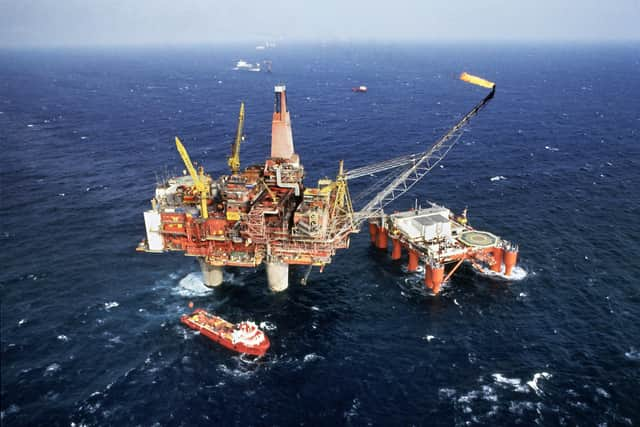Climate change: North Sea oil and gas industry needs to realise its end is nigh – Dr Richard Dixon
The agreement clearly states that the two parties do not “entirely agree” on oil and gas and specifies that there will be a programme of “work and analysis” looking at future energy demand and “how this aligns with our climate targets” and the Paris Agreement goals. This is to be complete by the end of next year. This week’s Programme for Government echoes these words but adds no further detail.
So is this proposed programme of work a genuine attempt to work out how little more oil and gas we should extract from UK waters or a ploy to make the issue go away for more than a year?
Advertisement
Hide AdAdvertisement
Hide AdIt is not yet clear who will undertake this review and how independent evidence will be included. By rights it should start from the International Energy Agency’s recent conclusion that no new developments should even be considered. If this review is done properly, it surely cannot fail to conclude that we need to phase out oil and gas extraction very rapidly.
The oil industry’s current PR wheeze is to threaten us with the spectre of relying on oil and gas from Russia or authoritarian regimes in the Middle East. (Even though we actually export plenty of oil and our biggest supplier of gas is Norway.)
So the review’s look at ‘future energy demand’ should be very interesting because it will reveal that Scotland’s demand for oil and gas is about to start a sharp decline.
Most oil is used to make petrol and diesel, but already we have Scottish government commitments to stop sales of fossil-fuelled cars and vans, and reduce miles driven by 20 per cent by 2030.


Car manufacturers are rolling out electric models and committing electric-only futures. Electric double-decker buses are already on the streets of Edinburgh. So what exactly are we going to need all that oil for?
Most gas is used for heating or in power stations. In a couple of years, you will not be allowed to install a gas boiler in a new-build house and from 2030 you won’t be allowed to install a replacement gas boiler.
Meanwhile, the inexorable rise of renewables means there is less and less need for gas-fired power stations. So what exactly are we going to need all that gas for?
The oil industry will no doubt continue to spin the myth that carbon capture and hydrogen from gas mean they can just keep on going as usual into the 2050s. The biggest danger of this review is that it will fall for this delaying tactic.
Advertisement
Hide AdAdvertisement
Hide AdWho will the Scottish government get advice from? The oil enthusiasts might be out of luck if it is the usual statutory advisers: the Committee on Climate Change.
Last week their chair, Lord Deben, told a parliamentary committee that the evidence for any new oil and gas production would have to be “very, very, very strong” and he had not seen any such evidence.
With demand declining and the need to reduce climate emissions paramount, the end must be in sight for oil production.
Dr Richard Dixon is director of Friends of the Earth Scotland
A message from the Editor:
Thank you for reading this article. We're more reliant on your support than ever as the shift in consumer habits brought about by coronavirus impacts our advertisers.
If you haven't already, please consider supporting our trusted, fact-checked journalism by taking out a digital subscription.
Comments
Want to join the conversation? Please or to comment on this article.
